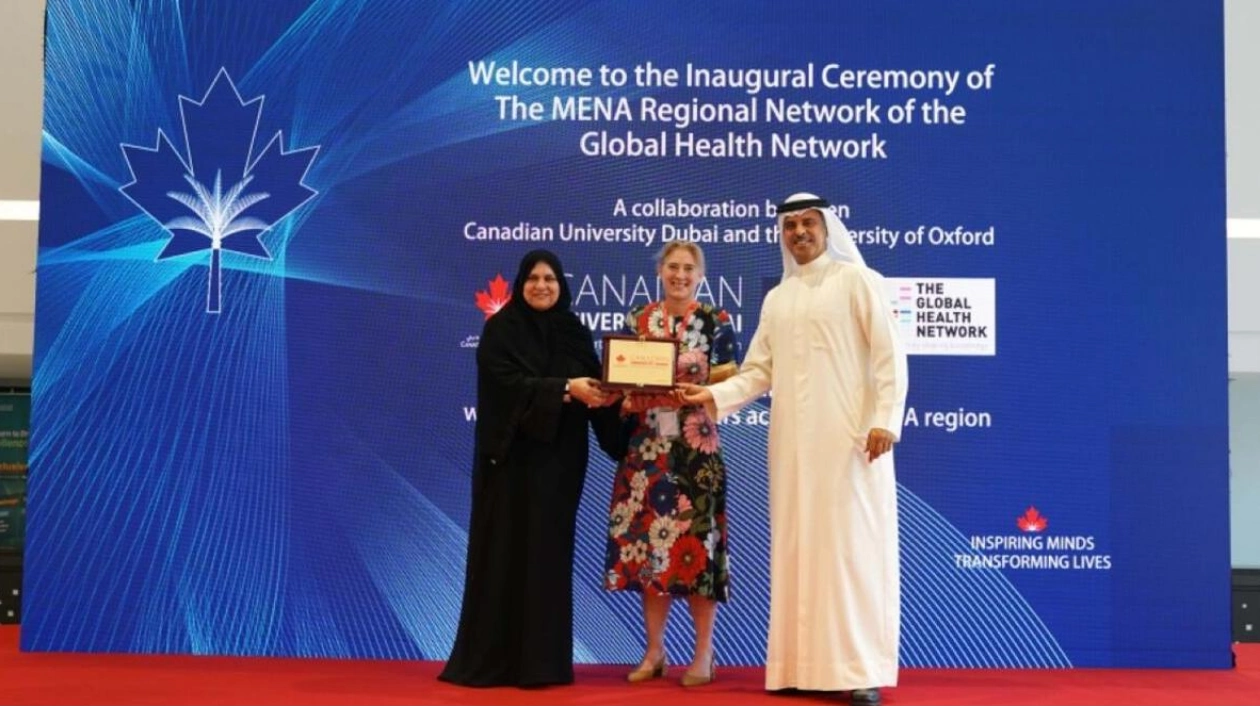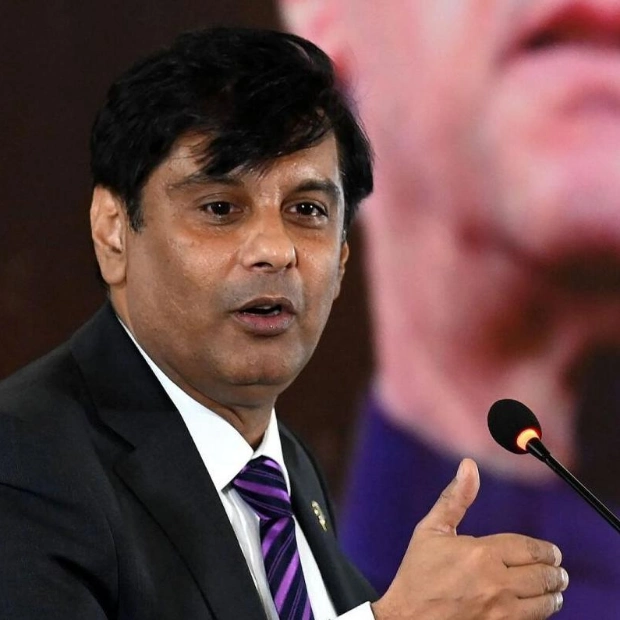Dr. Raja Al Gurg, Chairperson of the Board of Directors of Al Jalila Foundation; Prof. Trudie Lang, Director of The Global Health Network; and Buti Saeed Al Ghandi, Chancellor of Canadian University Dubai.
Canadian University Dubai (CUD) and the University of Oxford have officially inaugurated the MENA regional hub of The Global Health Network (TGHN) during a ceremony held at the institution’s campus in Dubai City Walk. The event was graced by Dr. Raja Al Gurg, Member of the Board of Trustees and Chairperson of the Board of Directors of the global philanthropic healthcare organization, Al Jalila Foundation. TGHN MENA will specifically concentrate on research to inform evidence for the responsible use of artificial intelligence in global healthcare. CUD Chancellor, Buti Saeed Al Ghandi, and Director of The Global Health Network, Prof. Trudie Lang, officially launched the new hub in front of regional and international academics and the broader university community. The ceremony positions CUD as a regional platform to unite prominent academic institutions with government and non-government entities to explore and advance health research capacity and AI in public health.
Opening the event, Dr. Aseel Takshe, Dean of the School of Environmental and Health Sciences at CUD, stated, "This Network involves strategic partners from 14 countries and has been established to facilitate research and knowledge exchange on public health issues specific to the MENA region. On behalf of the university, I express our pride in being part of this collaboration with the University of Oxford Centre for Tropical Medicine and Global Health."
Delivering the inaugural address, Al Ghandi said, "This event marks the beginning of an important initiative that aligns with both the UAE’s Health Vision and the UAE 2031 Vision, positioning our nation as a premier hub of innovation and leadership on the global stage. Through this Network, we aim to enhance reciprocity in public health education and research, ensuring the positioning of the MENA region as an avant-garde hub for global healthcare innovation and education. Together, we have the power to not only address the pressing health challenges of today but to create a sustainable and prosperous future where health equity prevails, and all members of society thrive."
In her keynote address, Prof. Lang explained the background to the creation of TGHN MENA, which was first discussed at the 2022 Global Health Network Conference in Cape Town. CUD Assistant Professor, Dr. Mohammed Alkhaldi, was selected for one of just 16 speaker positions from over 4,000 abstracts submitted to the conference, with his paper on enabling health research. Prof. Lang said, "This is exactly what the Global Health Network aims to achieve, to connect everyone involved in public health to generate evidence that can improve healthcare outcomes. At present, 90 per cent of health research benefits only 10 per cent of the global population, and we need a paradigm change." Prof. Lang further emphasized the importance of the regional Network, adding, "We work with frontline health workers across the globe to support them in leading their own health research programs relevant to their own region, and to share their knowledge locally. MENA has its own unique health challenges, and the Arab speaking world has the opportunity to be a pioneer in specific areas of health research."
The inauguration ceremony also featured a live art show by Canadian artist, Sylvain Tremblay, and a musical performance by the CUD student music club, both centered around the themes of sustainability and well-being. Academics from regional partner institutions participated in a range of panel and technical discussions, which also saw CUD students present their own research on the priorities for public health research and practice in the MENA region.
Speaking about the future plans for the hub, Dr. Takshe said, "This hub will aim to promote equity in the settings where health research is conducted. Throughout the MENA area, the knowledge community aims to facilitate the adoption and application of data science and capacity building health programs and practices which will benefit every healthcare setting."
Source link: https://www.khaleejtimes.com






